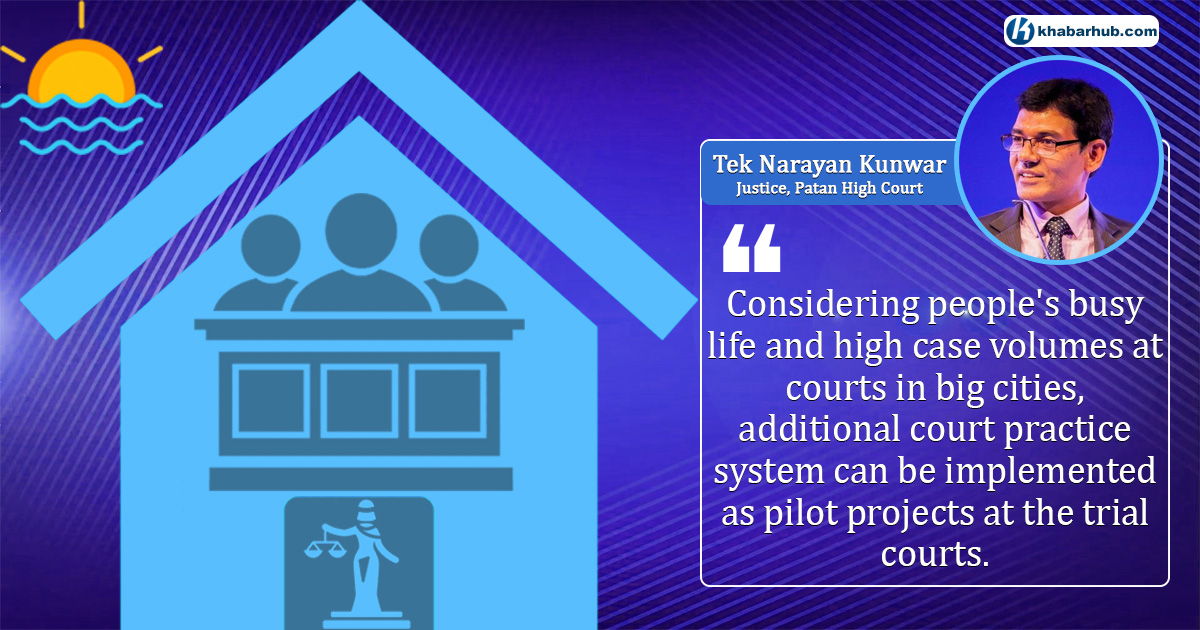0%

Legal system of countries across the world is based either on common law or on civil law or combines both. Whether the legal system of a country is inclined towards common law or civil law is not much significant given the fact that the prime objective of any legal system is to impart people with justice characterized by promptness, fairness, impartiality and accessibility.
To realize their goal of a meaningful justice delivery, many developing countries in the world are found practicing court procedures in the evening and night hours, in addition to the normal day office hours.
Every democracy strives to maintain these qualities in its legal system. Various creative approaches can be adopted in delivering justice under existing legal system that is prompt and accessible.
To realize their goal of a meaningful justice delivery, many developing countries in the world are found practicing court procedures in the evening and night hours, in addition to the normal day office hours.
Such a practice could be a matter of concern for a country like ours. First let’s deliberate on the objective of conducting court procedures in additional hours. The first objective is to provide legal service to those who cannot attend the court on normal hours thanks to their occupation or other reasons. The second is to increase people’s access to justice. Similarly, the third objective is to develop an effective legal system which ensures the protection of a citizen’s fundamental rights through flexible court hours. The fourth objective remains to ease the work load of courts running on normal hours in an effective manner.
Thus, it seems pertinent to run courts in additional hours in order to realize these objectives. Nepal can learn from such courts (evening hours) functional in countries like: the USA, Singapore, Malaysia and also neighboring India.
Procedures regarding the power of attorney and remand were carried out by these courts. Unfortunately, those initiatives came to a halt in a short period.
In such countries both the parties of a case have expressed the need of court procedures beyond normal office hours.
Nepal is now undergoing rapid urbanization. People in the urban areas are getting increasingly busy. As such, they are burdened by work load to attend courts on normal office hours. Therefore, considering people’s busy life and high case volumes at courts in big cities, additional court practice can be implemented as pilot projects at the trial courts. Given transportation, communication and security facilities, it is easy to implement pilot projects in such cities. Big cities are also ideal cites for pilot projects as it is easy to conduct follow up and evaluation activities of pilot projects.
In fact, a report in this regard was prepared a few years ago after a study in running evening courts at the initiation of the Supreme Court. Procedures regarding the power of attorney and remand were carried out by these courts. Unfortunately, those initiatives came to a halt in a short period.
In this context, it seems appropriate to initiate the practice of running evening courts in general cases: for example those attracting punishment of less than three years in a criminal case and those of declaring certain claim amounts in a civil case.
Running of evening courts after due consultation with the concerned stakeholders involving: the government, Nepal Bar, government attorney, civil society and the parties of cases shall yield positive results.
Running of evening courts in the trial courts having excessive work load shall result in the reduced case load. This shall benefit people deprived of justice for many years thereby increasing public access to justice.
-Kunwar is a Justice at Patan High Court
(Views expressed in this article are the author’s own and do not necessarily reflect Khabarhub’s editorial stance)